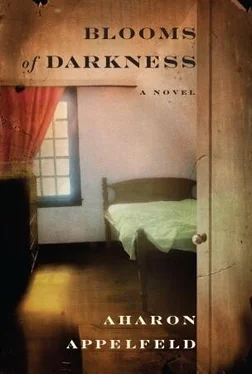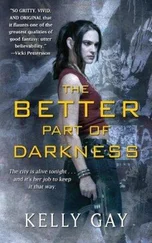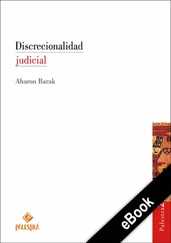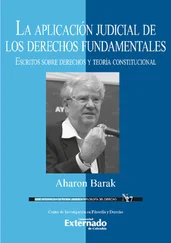In the midst of it all, a shot is heard. The sound pierces the house and the closet. Mariana’s room freezes for a moment. There is no response to the shot from the corridor or from the yard, either. Only later does Mariana burst into loud sobs, and a few women enter her room. “Are you wounded?” one of them asks.
“I’m not wounded,” she murmurs.
“That’s a relief.” The same woman goes on to ask, “What did he want from you?”
Mariana, still sobbing, tells the woman what the officer demanded of her. She speaks in detail, and graphically. Hugo doesn’t understand anything she says. The women agree with her that they mustn’t give in to demands like those. There is sisterhood and much talk, which slightly diffuses the shock.
After that everybody leaves Mariana’s room. There is silence. Not a sound can be heard — just the dripping of the faucet in the yard. Through the cracks in the closet, the first rays of morning light filter in. They are long and touch Hugo’s feet. For a moment he forgets the shot and the shock. The wonder of light captures his attention.
Later Hugo hears a woman say, “He didn’t intend to kill her. He wanted to frighten her.”
“He was afraid that his shame would be revealed to his fellow officers.” The voice of an older woman is heard.
“If so, he meant to kill her.”
“What can you say? Our profession is dangerous. They should pay us a risk allowance.”
Laughter is heard, and the voices mingle with one another. Hugo knows there will be accusations, clarifications, threats, and, finally, Mariana will have to apologize and promise that in the future she won’t shout and will do exactly what the customer demands of her.
It’s strange that this knowledge calms his fears and that he is comforted in his heart. In a moment the white morning will be revealed, and everything will be as it was. In the afternoon Mariana will stand in the doorway of the closet with a bowl of soup in her hand.
The winds die down and snow falls without letup. Hugo stands next to the cracks in the closet wall and watches the thick snowflakes slowly floating down. The white sight reminds him of home on Sunday mornings: Sofia went to church to pray; his father, dressed in casual clothes, prepared a festive breakfast; his mother put on a new housecoat. The gramophone played Bach sonatas, and the blue porcelain stove roared and gave off pleasant heat.
Hugo loved that relaxed atmosphere, with none of the tension of rushed weekday mornings. On Sunday mornings worries were erased, the pharmacy was forgotten, and his mother didn’t even talk about all the poor people she took care of. The music and the quiet enveloped the three of them.
When Sofia returned from church, she would be all covered with snow. Hugo’s mother would help her shake off the snowflakes, and then prepare a cup of coffee and a piece of cake for her. Everybody would sit down beside her. Sofia would tell them about the service and the sermon, always bringing back a parable or proverb that had impressed her. One time she recited, “For man does not live by bread alone.”
“What impressed you about that verse?” asked Hugo’s father.
“We sometimes forget why we’re alive. It seems to us that making a living is the main thing. Or that physical love or property is the main thing. That’s a great mistake.”
“So what is the main thing?” Hugo’s father tried to draw her out.
“God,” she said, opening her eyes wide.
Sofia was full of contradictions. Every Sunday she would make sure to go to church, and sometimes also in the middle of the week, but in the evenings she liked to pass the time in the tavern. True, she didn’t get drunk, but she came back merry and a bit tipsy. Some of the men she had spent time with promised to marry her but changed their minds in the end. Because of those false promises, Sofia decided to return to her native village. In the village, no man would dare to promise marriage and not keep his promise. If a man promised marriage and didn’t keep his promise, they would lie in wait for him and beat him till blood flowed.
Hugo liked to listen to Sofia’s stories. She spoke to him in Ukrainian. She loved her mother tongue and wanted Hugo to speak it without an accent, too, and without mistakes. Hugo tried but didn’t always succeed.
Sofia was so different from his parents and his friends’ parents, as if she had been born on another continent: she spoke loudly and with broad gestures, and when it seemed to her that people didn’t understand her, she used her large face to imitate her neighbors and suitors. She sang, too, kneeling on the floor and making everyone laugh.
The cold in the closet is unrelenting. Mariana often comes late with Hugo’s cup of milk in the morning, and sometimes she goes into town and forgets him all day long. But sometimes she says, “Come to Mariana, and she’ll hug you, darling,” and so she brings him from the cold darkness to her vibrant breast. In the hours he spends in her bed, embraced in her long arms, marvelous oblivion envelops him. For whole days he looks forward to those hours. When they come, he is stricken, or paralyzed, and he doesn’t know what to say or do. But this doesn’t happen every day. Most days Mariana is drunk, grumpy, and she falls on her bed in a stupor.
So it is, day after day. There are gloomy days when Hugo sees only the closet walls and Mariana’s faded housedresses hanging on hooks. The narrow cracks in the closet walls reveal only the fence and the gray bushes that have shed all their leaves. This is a prison , Hugo says to himself. In prison it’s impossible to read. It’s impossible to do homework. It’s even impossible to play chess. Prison stifles thought and imagination. That realization has come to reside within him over the past few days. Since then he has been afraid that his head will slowly empty. He will no longer think or imagine. One day he will fall over like the tree in the yard of their house did last winter. But when Mariana finally remembers him, opens the closet door, and says, “What’s Mariana’s darling doing?” Hugo’s fears evaporate all at once, and he rises to his feet.
One day, when they’re still asleep in the broad bed, wrapped in each other’s arms, Mariana wakes up in a panic.
“It’s very late, my darling,” she cries out. “You have to go into the closet immediately.” When that happens, Hugo feels his body shrink, and he hunches over and walks to the closet without saying anything.
It’s quiet. Not a sound can be heard from Mariana’s room. For a moment it seems that in a little while the door will open, and Mariana will call out, as she sometimes does, Darling, come to me .
Hugo listens expectantly.
He soon realizes that Mariana and her partner are pleased with each other, and whispering. From the few words he catches, it’s clear that this time there are no arguments, no accusations, and everything is happening quietly, and with consent.
The thought that Mariana has sent him out of her bed so she can sleep with a grown man suddenly fills Hugo with envy and anger.
He feels so angry and sorry for himself that he falls asleep.
In his dream he sees his mother. She is young and beautiful and dressed in the poplin gown she loved.
“Don’t you love me anymore?” she asks with a provocative smile.
“I?” He is stunned, like someone whose secrets have been bared.
“You prefer Mariana to me,” she says, pretending to be insulted, the way she sometimes did. “I love you very much, Mama.”
“You’re saying that to be polite,” she says, and disappears.
When Hugo wakes from that nightmare, he knows the dream’s meaning. If his mother were near him, he would try to console her. But since she isn’t there, her words remain suspended in the darkness, like an accusation supported by evidence.
Читать дальше












